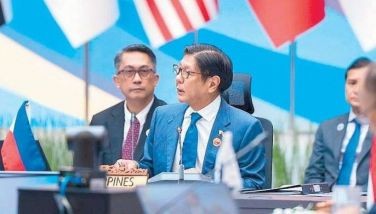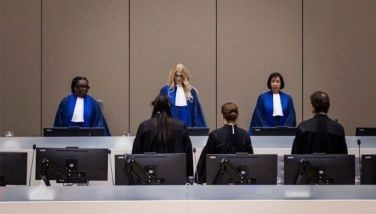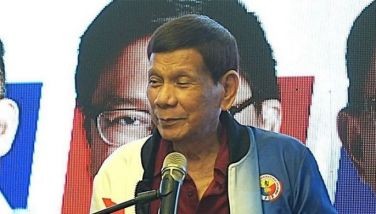Fair and square

MILAN – The era of corruption in AIBA (Association Internationale de Boxe) tournaments is clearly over.
For over 20 years, Pakistan’s Anwar Chowdry reigned as AIBA president with an iron fist. The speculation was he often dictated on the referees and judges whom to pick as winners in fights, whether in the World Championships or Olympics. Charges of fixing results were rampant. Chowdry was accused to lining his pockets with bribe money although no hard evidence ever surfaced to pin him down.
One of the most glaring incidents of unfair scoring was Roy Jones’ loss to a Korean in the finals of the 1988 Seoul Olympics as Chowdry’s supposed gift to the hosts. Ironically, Jones was voted the Most Outstanding Boxer in the competitions despite the loss.
In 2007, Taiwan’s Dr. Ching Kuo Wu finally unseated Chowdry in a close vote for the AIBA presidency to finally end the dictatorship. The victory was hailed as the beginning of a new regime that was committed to fair play.
Under Dr. Wu’s leadership, the AIBA conducted the boxing event at the Beijing Olympics in a transparent and no-nonsense manner. No country was favored. The playing field was even. And the results were a testament to Dr. Wu’s stamp of integrity. Nine countries won a gold medal out of a possible 11, the best split of individual nations ever in Olympic boxing.
Moldova and Mauritius bagged their only Olympic medals from boxing. Armenia and India claimed their first Olympic boxing medals. Mongolia and the Dominican Republic won their first-ever Olympic gold medals.
“Having 283 boxers from 77 countries participating, numerous records were broken and only four protests across the 272 bouts proved that we now have a clean, honest and transparent sport,” said Dr. Wu.
At the World Championships here, the consensus was the judging was just as fair and square as in the last Olympics.
AIBA Executive Committee member Nieva Tesoro Embuldeniya, a Filipina now living in Sri Lanka, said Dr. Wu’s decision to centralize the assignment of referees and judges in international competitions has a lot to do with cleaning up the ranks.
In the past, the host federation had a hand in choosing the referees and judges – a potentially dangerous situation because it bred a debt of gratitude. But now, AIBA has full control of designating who will comprise the cast for its tournaments.
“First of all, AIBA will select only three-star referees and judges, meaning only the highest-ranking officials are considered,” said Embuldeniya. “AIBA pays for the referees and judges’ transportation, allowances, board and lodging so no one is beholden to the host federation. There is no attachment to a particular country because it is AIBA that controls the assignments.”
Embuldeniya said the referees and judges are ranked according to their past performance. “Countries just can’t send whomever they want,” she explained. “Referees and judges are invited by AIBA. They’re not volunteered.”
In the Philippines’ case, Doy Vidal was invited by AIBA to officiate here but he declined the offer because he had just settled in his new job in the US. No other invitation was given to a Filipino referee and judge, leaving the country without a representative in the 45-man roster here.
National coach Pat Gaspi said he can’t complain about the judging in the five losses suffered by Filipino boxers.
“We really lost,” he said. “No excuses. Of course, we could’ve done better if we had more foreign exposure. But as far as the judging was concerned, we got what we deserved.”
* * * *
PLDT Global has a major presence in Milan and with general manager Rey Yu at the helm, the direction is to establish an even more prominent role throughout Italy.
The big hit is Smart Pinoy’s Noypi Extreme where for only seven Euros monthly (about P550), subscribers get a free 45 Euro call for 900 minutes and free 150 Euro SMS or 1,500 texts to co-Smart Pinoy cells. There’s also a bonus of free 2.40 Euro international SMS or 30 texts to the Philippines. In terms of calls, the charges are extremely reasonable – 0.12 Euro per minute to a Philippine landline, 0.13 Euro per minute to a Philippine cell and 0.15 Euro per minute to all Italy numbers.
That’s not all. PLDT Global – whose big boss is Hong Kong-based Al Panlilio – has sweetened the pot by offering “Extreme Rewards” like a free three Euro load for the first month, a free P115 load for the third month, a free premium item for the sixth month and a free 100 Euro call to a Smart Pinoy cell and a package called “SIM Extreme” where free loads await subscribers after their first month.
No wonder PLDT Global’s wireless center office is buzzing with activity, seven days a week.
National sales manager Artemio (Jojo) Quiamas, Jr. and marketing officer Leo Giovanni Jose are at the forefront of the effort for growth. PLDT’s Roel Paule is also on the team to provide technical expertise. Jose, 26, moved to Italy when he was 10 with his family and speaks Italian like an Italian.
- Latest
- Trending



































